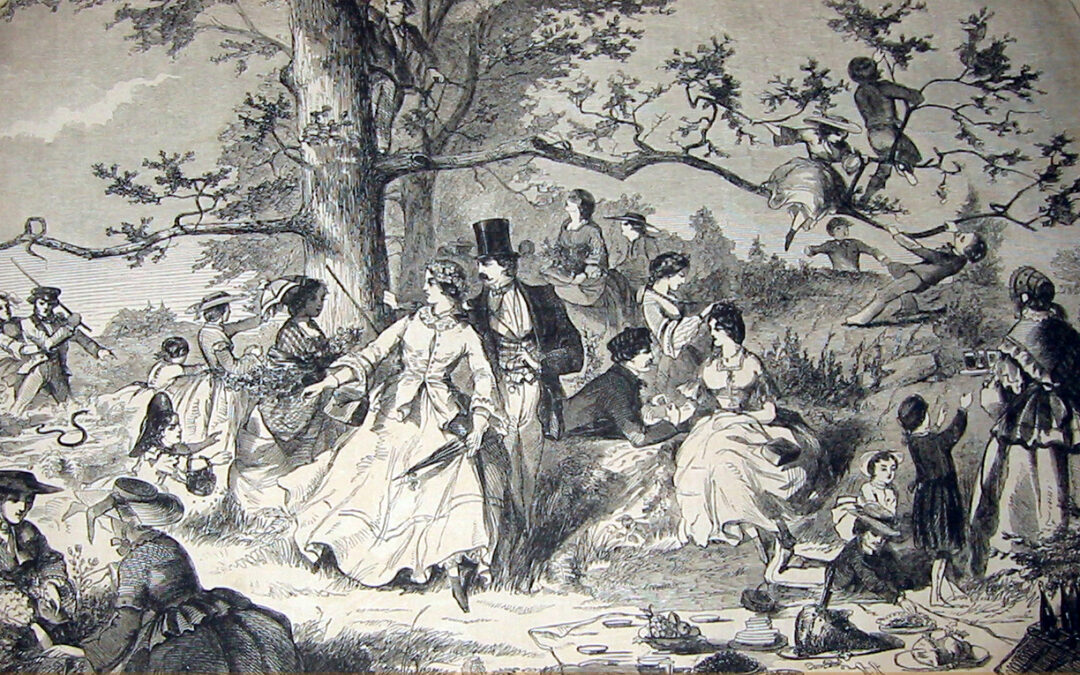 Homer’s A Picnic in the Woods is a pleasant joke, suggesting that the usually staid picnic might also be tumultuous. The action here is everywhere. A large picnic blanket is spread and filled with food: a bowl of fruit, a large ham with a knife for carving, a...
Homer’s A Picnic in the Woods is a pleasant joke, suggesting that the usually staid picnic might also be tumultuous. The action here is everywhere. A large picnic blanket is spread and filled with food: a bowl of fruit, a large ham with a knife for carving, a...
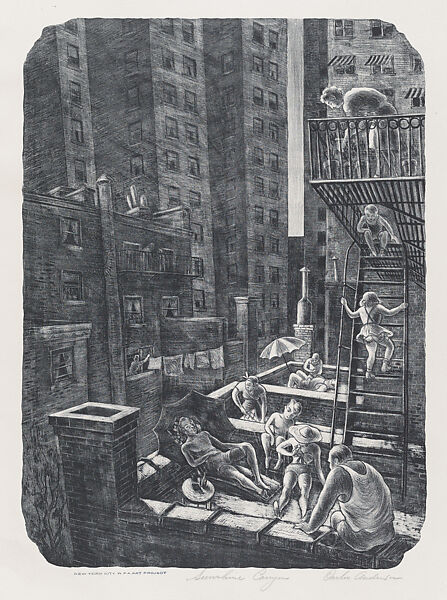 Anderson’s rooftop is an example of the urban version of tar beach. For another example, see Ringgold’s Tar Beach. See Carlos Anderson Sunshine Canyon (1943c.)
Anderson’s rooftop is an example of the urban version of tar beach. For another example, see Ringgold’s Tar Beach. See Carlos Anderson Sunshine Canyon (1943c.)
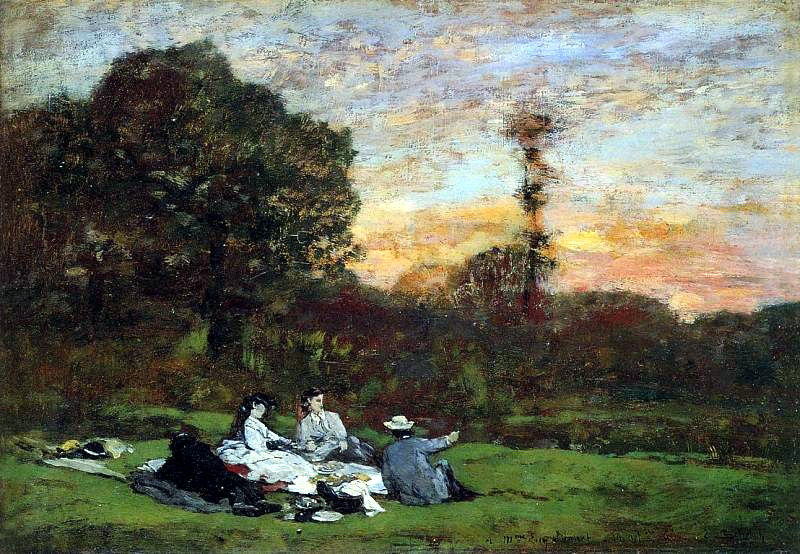 Boudin’s Luncheon Grass, the Family of Eugene Manet (1866) is a typical landscape with picnickers. Unlike Manet’s Luncheon, this is not confrontational or sexual. Because Boudin was a friend of the Manet family, especially Eugène, this picture of them...
Boudin’s Luncheon Grass, the Family of Eugene Manet (1866) is a typical landscape with picnickers. Unlike Manet’s Luncheon, this is not confrontational or sexual. Because Boudin was a friend of the Manet family, especially Eugène, this picture of them...
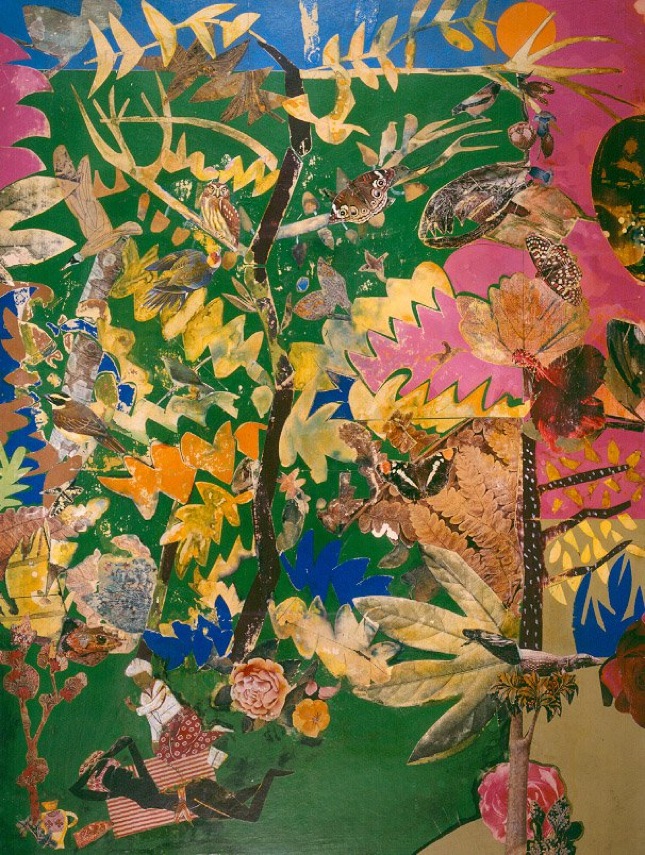 Bearden transports Omar Khayyám’s Persia to the Tropics for his take on “Quatrain XI” from The Rubáiyát of Omar Khayyám. But the man is Persian and the woman is black. Though the poem suggests sensuality, Bearden presents the poet clothed but the woman naked, except...
Bearden transports Omar Khayyám’s Persia to the Tropics for his take on “Quatrain XI” from The Rubáiyát of Omar Khayyám. But the man is Persian and the woman is black. Though the poem suggests sensuality, Bearden presents the poet clothed but the woman naked, except...
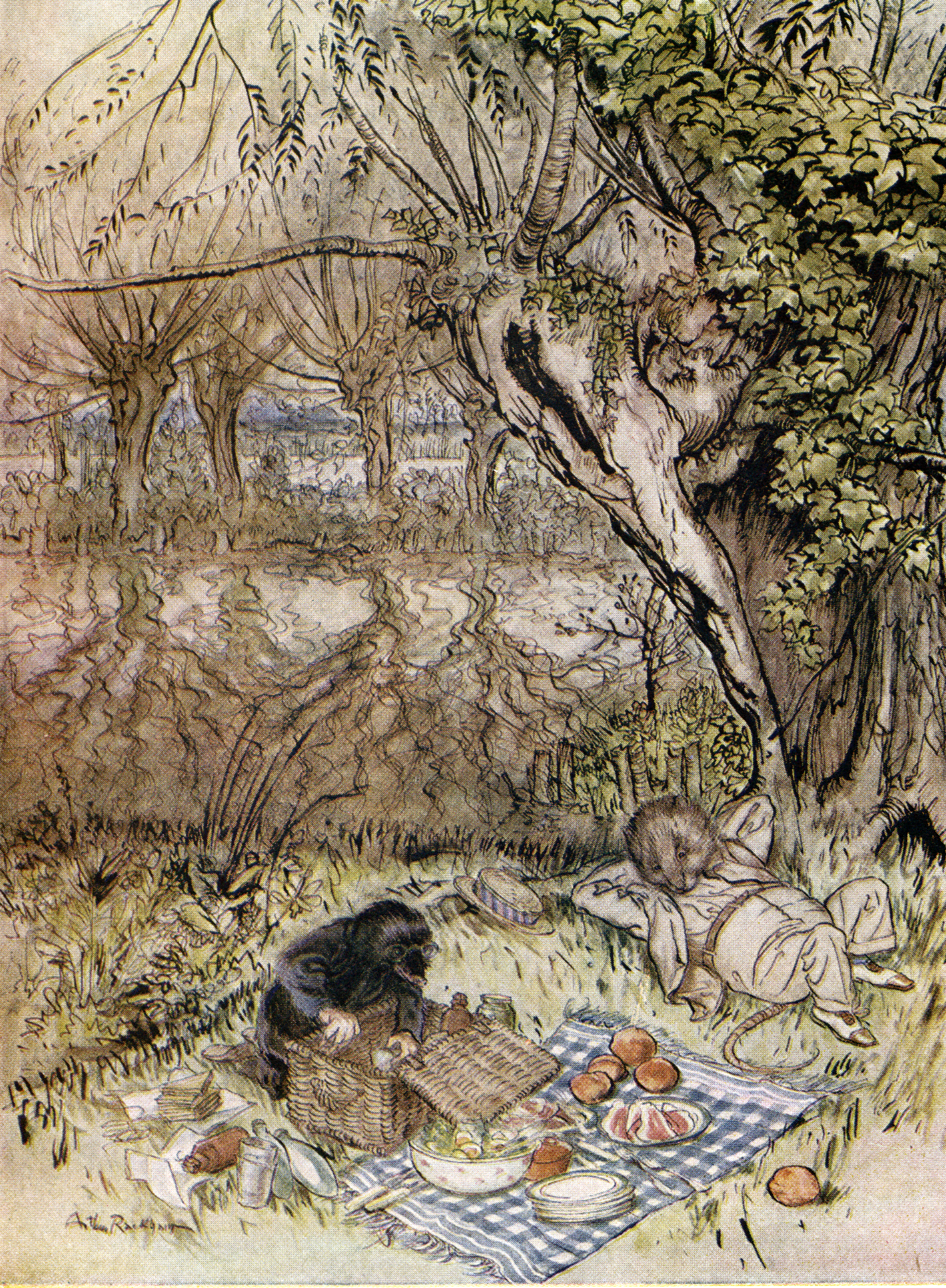 “The Mole begged as a favour to be allowed to unpack it all by himself,” In Wind in the Willows by Kenneth Grahame. New York: Scribner’s Sons, 1931.
“The Mole begged as a favour to be allowed to unpack it all by himself,” In Wind in the Willows by Kenneth Grahame. New York: Scribner’s Sons, 1931.
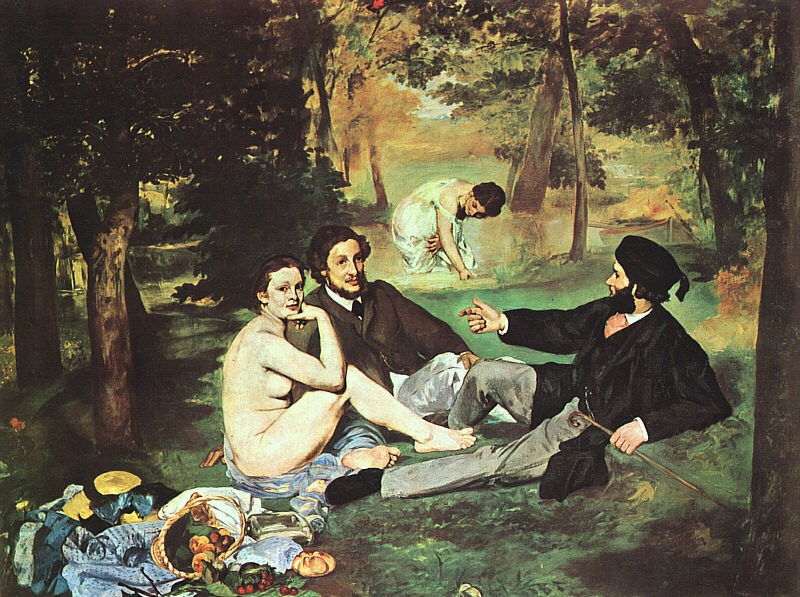 Manet’s Le déjeuner sur l’herbe is a French euphemism for picnic in English. Pique-nique was not used for an alfresco luncheon but for dinner indoors, repas de pique-nique. When it was exhibited in 1863 at the Salon des Refusés, the painting was titled Le...
Manet’s Le déjeuner sur l’herbe is a French euphemism for picnic in English. Pique-nique was not used for an alfresco luncheon but for dinner indoors, repas de pique-nique. When it was exhibited in 1863 at the Salon des Refusés, the painting was titled Le...
 The Sevso Plate * (27.8 inches in diameter) may also reference a hunting feast describe by the roman writer Philostratus. But the iconography is Christian. The Chi-Rho situated at the apex of the legend on the plate’s circumference is a symbol for Jesus Christ...
The Sevso Plate * (27.8 inches in diameter) may also reference a hunting feast describe by the roman writer Philostratus. But the iconography is Christian. The Chi-Rho situated at the apex of the legend on the plate’s circumference is a symbol for Jesus Christ...
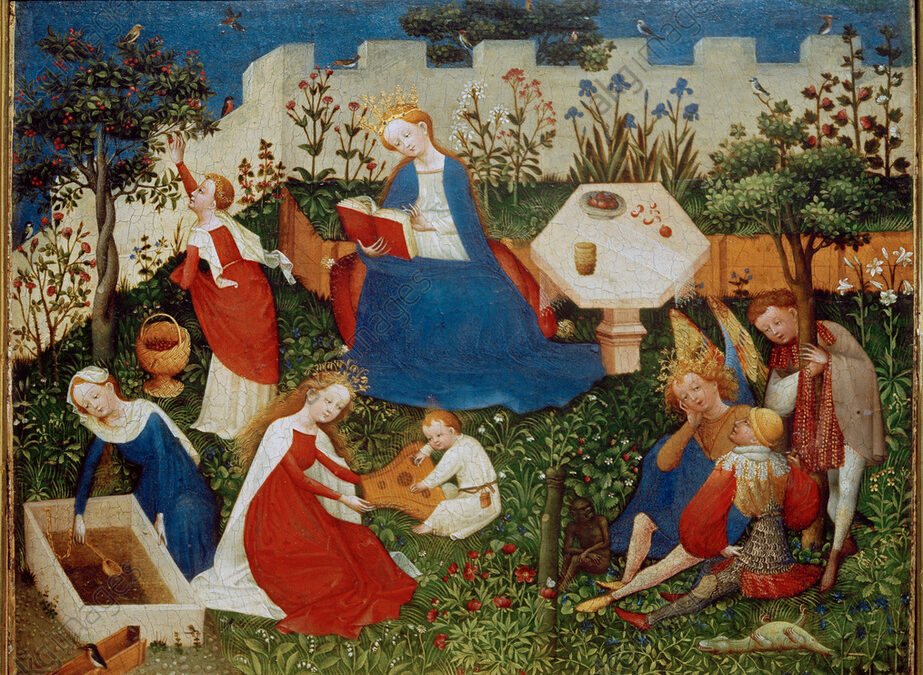 The Garden of Paradise recasts in a contemporary Hortus Conclusus as an allegory of life before the Fall. Tucked into a protected garden, free from original sin, homage the Virgin Mary and the baby Jesus are at ease. The secluded garden offers serenity in a busy...
The Garden of Paradise recasts in a contemporary Hortus Conclusus as an allegory of life before the Fall. Tucked into a protected garden, free from original sin, homage the Virgin Mary and the baby Jesus are at ease. The secluded garden offers serenity in a busy...
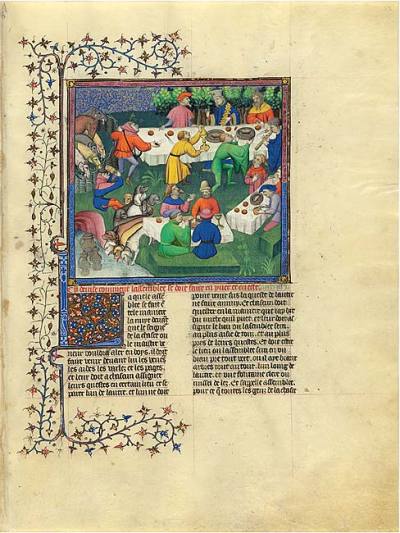 When Edward Langley, 2nd Duke of York, translated Gaston’s Le livre de chasse (1389) into English, French was still the language of the Court and elsewhere. He renamed it The Master of Game.* Like Chaucer, Edward’s translation decided to write in English...
When Edward Langley, 2nd Duke of York, translated Gaston’s Le livre de chasse (1389) into English, French was still the language of the Court and elsewhere. He renamed it The Master of Game.* Like Chaucer, Edward’s translation decided to write in English...
 In The Lives of the Painters, Vasari offers Piero as a preternaturally gloomy man. “As he discoursed,” Vasari says, “he would twist everything to the strangest meanings ever heard.” Why else would an artist paint a wedding picnic dinner ending...
In The Lives of the Painters, Vasari offers Piero as a preternaturally gloomy man. “As he discoursed,” Vasari says, “he would twist everything to the strangest meanings ever heard.” Why else would an artist paint a wedding picnic dinner ending...











